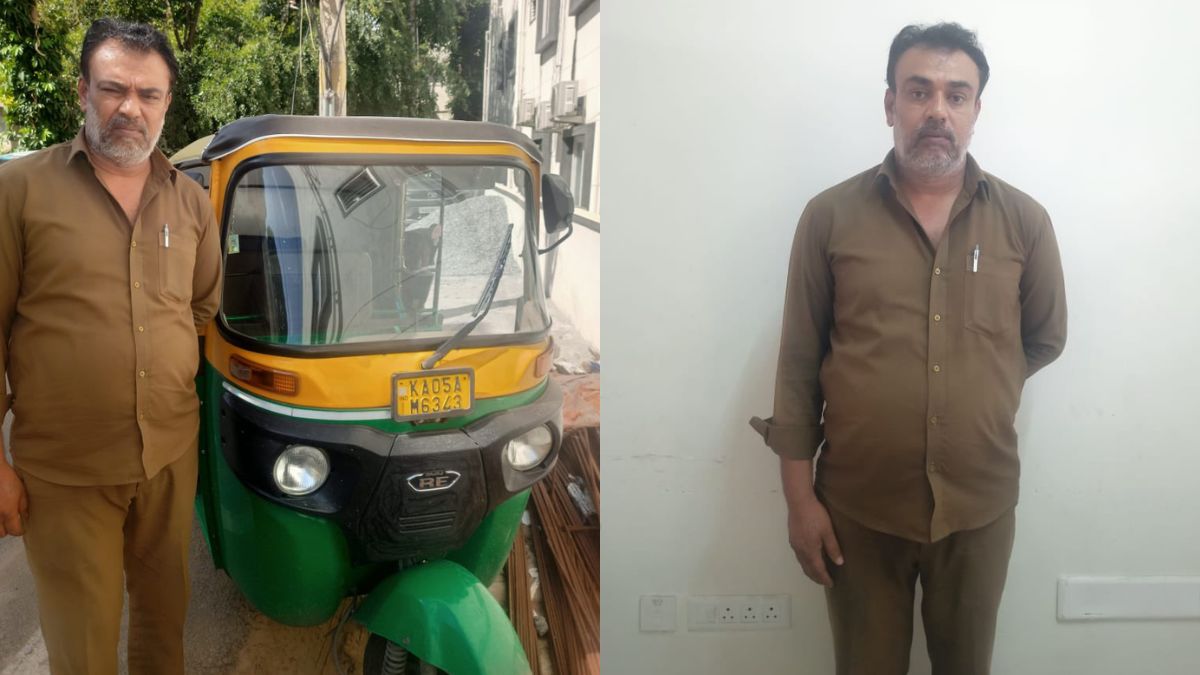A viral video showcasing an Ola auto driver assaulting a woman in Bengaluru has sparked outrage and ignited discussions about women’s safety and the role of ride-hailing platforms in ensuring passenger security. This incident, which has sent shockwaves through the city, serves as a stark reminder of the challenges women face in public spaces and the urgent need for stricter regulations and accountability.
The Incident: A Cascade of Abuse
The incident began when a woman and her friend booked separate autos through the Ola app. The woman cancelled her ride to ensure her friend would not miss an important class, as they had booked two autos as a precaution against the common practice of drivers cancelling rides or demanding extra fees in Bengaluru. However, the driver, R. Muthuraj, became enraged at the cancellation, verbally abusing and slapping the woman.
Verbal Abuse and Physical Assault
Muthuraj, fuelled by anger, hurled insults at the woman, questioning her decision to cancel and demanding who would pay for his fuel. His aggression escalated further when he attempted to snatch her phone to prevent her from recording the incident. Despite the woman’s pleas to calm down, the driver refused and threatened her, ultimately slapping her in front of her auto driver and other bystanders who remained passive.
The Aftermath: Frustration and Inaction
The woman’s experience was compounded by the inaction of Ola, the ride-hailing platform, which provided only an automated response to her report of the incident. She expressed her frustration at the lack of immediate and appropriate action from Ola and raised concerns about the lack of support available to victims of such attacks.
Ola’s Responsibility and Action
The incident highlights the crucial responsibility of ride-hailing platforms in ensuring the safety of their passengers. While platforms like Ola operate on a large scale and face unique challenges in ensuring driver conduct, the responsibility ultimately falls on them to implement robust safety measures.
Safety Mechanisms and Policies
Ola, like other ride-hailing platforms, needs to address the issue of driver aggression by strengthening existing safety mechanisms and implementing new policies. These include:
- Background Checks: Thorough background checks on drivers to identify any previous criminal activity or aggressive behavior.
- Training: Comprehensive training for drivers on customer service, conflict resolution, and appropriate communication, including sensitivity to diverse communities.
- Reporting Systems: Streamlined and efficient reporting systems for passengers to easily and anonymously report misconduct or harassment.
- Immediate Action: Immediate action and consequences for drivers who violate safety guidelines and engage in harassment or assault.
Systemic Issues and Solutions
The incident reflects not only individual acts of aggression but also points to systemic issues within the ride-hailing industry and the broader society.
Culture of Impunity
A culture of impunity often enables abusive behavior by drivers who feel empowered to exploit passengers. This highlights the need for greater awareness and action to address such misconduct and create an environment of accountability.
Bystander Effect and Gender-Based Violence
The incident exposes the prevalence of the bystander effect, where witnesses often choose to remain passive in situations of harassment or assault. Addressing this issue requires encouraging bystander intervention and raising awareness of how to effectively intervene in such situations. Additionally, it underscores the deep-seated societal problem of gender-based violence that women experience in public spaces.
Increased Law Enforcement and Regulations
Strengthening law enforcement and implementing stricter regulations within the ride-hailing industry can provide a framework for better accountability and deter abusive behavior.
Taking Action for Safer Cities
This incident calls for collaborative action from various stakeholders to create safer cities for women and all individuals. This includes:
Ride-Hailing Platforms: Taking Ownership
Ride-hailing platforms must prioritize safety, take a proactive approach to preventing misconduct, and hold their drivers accountable for their actions. This includes addressing the concerns raised by the victim in this incident by providing adequate support, initiating a thorough investigation, and taking decisive action.
Law Enforcement: Stricter Enforcement and Justice
Law enforcement agencies need to prioritize the safety and security of women and individuals in public spaces by addressing such incidents with urgency, ensuring swift prosecution, and ensuring that the justice system holds perpetrators accountable.
Civil Society: Raising Awareness and Empowering Individuals
Civil society organizations and communities must raise awareness about the importance of bystander intervention, empower individuals to report abuse and harassment, and work towards creating a culture of safety and respect in public spaces.
Building a Safer City
The viral video is a powerful reminder that we are all responsible for creating a safe and respectful environment for all. By taking concrete steps to address the issue, we can strive towards a future where women feel safe and empowered in all aspects of public life.




